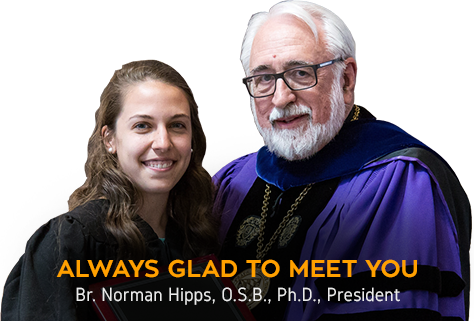How do you define workplace success? For me, success is having a job that is fun, motivating and interesting. It’s also about finding the right “fit” at work so that I feel that I am doing something valuable for others. I am very lucky that I have a job that I enjoy a lot, but I know that there are some individuals who are not in similar situations.
When I reflect back on how I came to work at a job where I can feel “successful,” I often think to the many mentors that I was lucky to have throughout my career. Through conversations with others who might not feel that their careers are where they would like them to be (regardless of what career stage they might be in), it seems that many of these individuals didn’t have effective mentors. This lack of mentorship has, unfortunately, stalled their attempts to achieve some of their career goals.
The importance of mentorship is the often-overlooked key to workplace success and there seems to be a lot of misinformation about what a good mentor is and what that person should do. Mentorship is not just about the transfer of knowledge between mentor and mentee (though this is, of course, part of effective mentorship in some circumstances and is especially important when the mentor possesses some nuanced knowledge, skill or ability crucial to the overall success of an organization).

Even more important, though, is for a mentor to aid the mentee in creating a social network that will help him or her to achieve success. This means introducing the mentee to decision makers both within and external to the organization. This also means inviting the mentee to events – both formal and informal – where he or she can meet the mentor’s contacts. Lastly, the mentor talking about the mentee positively to his or her contacts (so that these contacts will seek out the mentee when they also hear of development opportunities) is of importance for successful mentorship.
In addition to knowledge and social networks, mentors also need to function as an “emotional support” for mentees. Most people will acknowledge that work experiences often elicit emotional responses both positive and negative: joy, fear, surprise, sadness, excitement, anger and disappointment might be common emotions that are experienced on the job. Because visibly showing such extreme emotions publicly during work might be labeled as “unprofessional,” employees need a seemingly “safe” person with which to share their feelings. Obviously, family and friends are appropriate channels but they might not completely understand the job context that elicits such responses. Work mentors are perhaps more appropriate because they understand the emotional nature of the particular work environment. This is perhaps the most-overlooked aspect of mentoring: the mentor needs to extend the mentee the comfort to communicate emotions in a safe conversation in which the mentor is both supportive and non-judgmental but also helpful in crafting solutions for managing emotions.
Mentorship is important, especially to populations of individuals who are underrepresented in a workplace. Effective mentorship is important, therefore, not only for personal career success but also because it would improve the overall performance of the organization. Mentorship (especially the networking and emotional support functions) is crucial to both attract and retain employees who come into a job role with their own crucial knowledge, skills and abilities. Mentorship is also crucial because it allows for specialized knowledge (necessary to provide a product or service to customers) to remain in an organization after a mentor has left the workforce. The mentor has hopefully already transferred this crucial knowledge on to his or her mentee.

But finding a mentor is not always an easy task. Some organizations have formal mentoring programs in which a mentor who has a solid track record within an organization is assigned to a new employee. From my own personal experiences (both as a formal mentor and mentee) as well as the stories I hear from students, this approach is not always successful. The personalities of the mentor-mentee might not match. Their communication styles and life goals might be incompatible as well, therefore leading to a frustrating mentorship relationship. Instead, “informal” mentorship (whereas the mentor and mentee select themselves because of some commonality or pre-existing relationship) is more effective. Some key concepts to consider when developing a mentor-mentee relationship are:
- Selecting a mentor who has the specialized knowledge, skills or abilities that you believe you might need to be successful in your career.
- Selecting a mentor because he or she is influential in the workplace and, as such, has a vast network that you might also gain influence with in order to accomplish your career goals.
- Selecting a mentor because you admire his or her career and want to learn from his or her knowledge as well as seeking emotional support by understanding how he or she felt during their successes and failures.

This blog has focused a lot on a mentor-centered perspective in which the mentee learns from the mentor. While this is certainly the case, no effective mentor is also not impacted by the mentee. Mentoring is truly a two-way street in which (hopefully) both the mentee and mentor learn something of value. I think of one of my favorite movies, The Intern (which I’ve mentioned in an earlier blog), which is a clear example of intergenerational mentorship. Throughout the film, it is sometimes difficult to see who is the mentor between Anne Hathaway’s and Robert De Niro’s characters because both gain a lot from their workplace interactions. Of course, specifically what is gained in a mentoring relationship by each party may be different for each mentor-mentee, but no truly effective mentoring relationship will leave either party unchanged. Because of the positive changes that occur, both for the parties involved in the relationship and for the organizations in which they work, I consider mentorship an important key for organizational success.
I’m looking forward to hearing your thoughts. What was the most successful mentor-mentee relationship you’ve had? How did the relationship start? What made it effective? Have you ever experienced ineffective mentoring? Connect with me: at michael.urick@stvincent.edu, through Facebook (www.facebook.com/urickmj), or LinkedIn (www.linkedin.com/pub/michael-urick/a3/775/5b/).


 中国学生
中国学生 Estudiantes
Estudiantes




